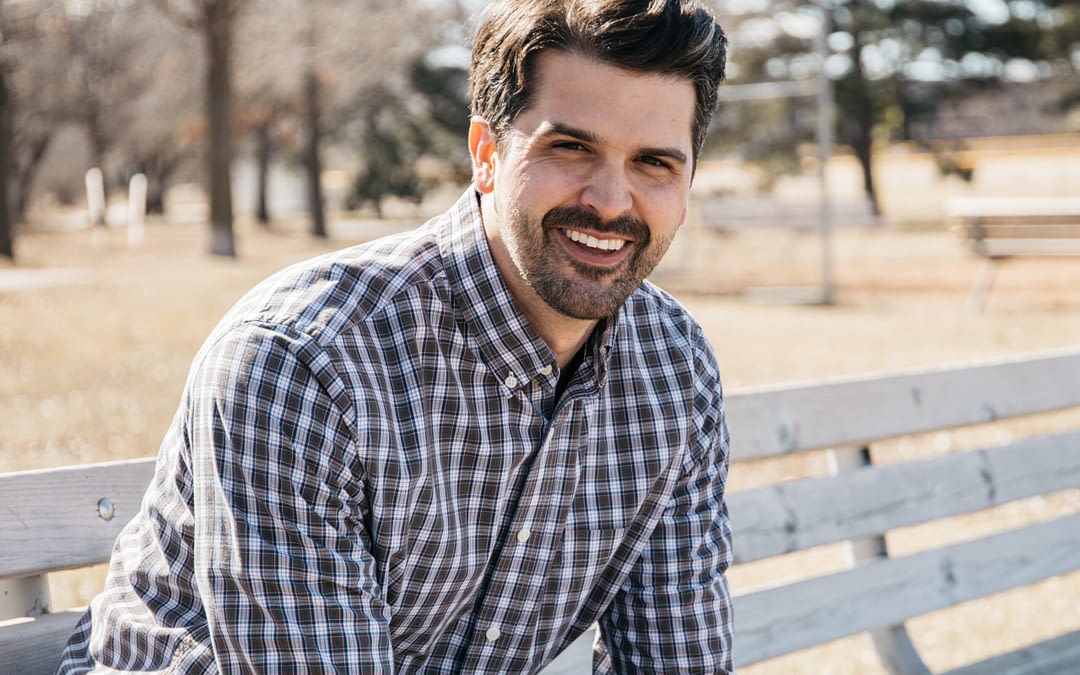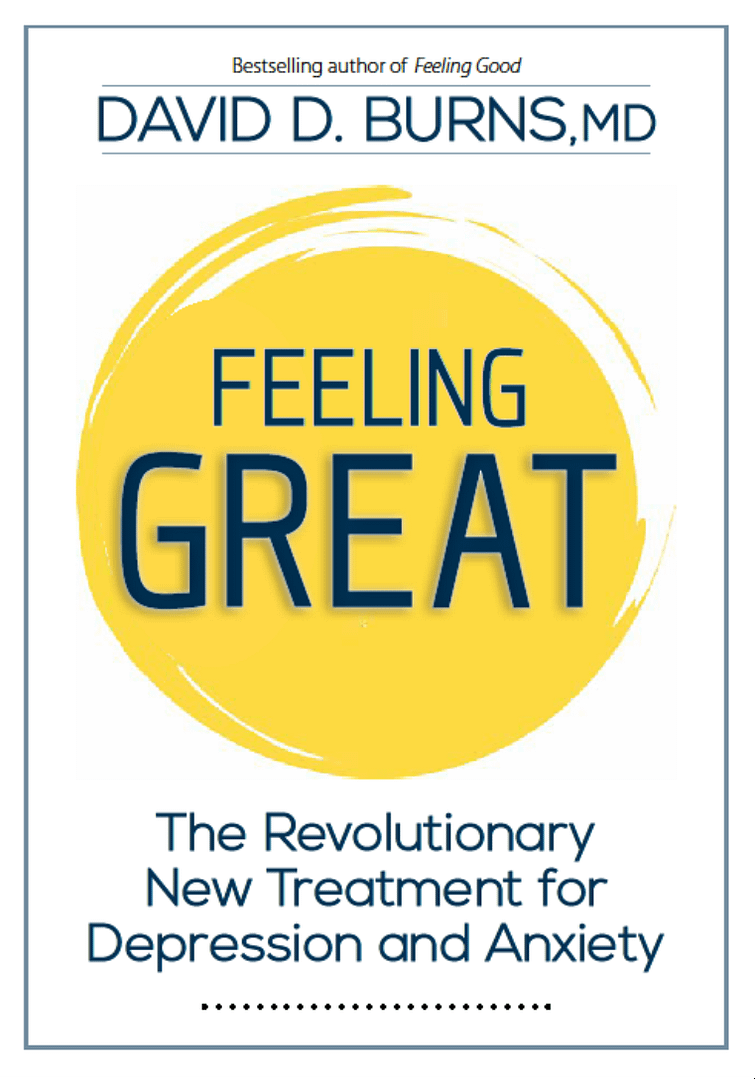FROZEN: Part 1 of 2
Featuring Personal Work with Cody
In today’s, and next week’s, podcasts. we present the next episode of live work with Cody. The first, which featured Rejection Practice for social anxiety, was published as Podcast #326 on January 9, 2023 at this LINK.
My co-therapist for this session was the wonderful Dr. Jill Levitt, the Director of Clinical Training at the Feeling Good Institute in Mt. View, California (LINK.).
Before I describe Cody’s session, I want to remind you that I am bringing back my annual, four-day summer intensive at the South San Francisco Conference Center this year, for the first time in five years. We had to abandon it due to the pandemic, and this year we are bringing it back to life on August 8 to 11. It will cover TEAM-CBT for depression and anxiety, but with a few changes, hopefully innovations and further improvements.
For one thing, you can attend in person or online this year, and Dr. Levitt will be teaching with me. This will make the experience even better, since Jill is a brilliant psychotherapy teacher, certainly among the top in the world! The in-person seating will be strictly limited to 100, so register early if you are interested, at
Intensive Information / Registration
The online version will be identical, with many skilled experts to guide you in the many interactive exercises, making both the in person and online versions identical. However, the online will be roughly half the cost, so that could be an appealing option if you are cost-conscious or if you live far away. No travel needed this year!
But perhaps most important, this annual intensive always proves to be the best training experience of the year, with chances to learn sophisticated and magnificent TEAM techniques to use with your patients. But you will also have the chance to do your own personal work. Many, many people have said that the intensives are absolutely magical, and I totally agree!
In fact, the summer intensive might be the training you always dreamed about, but never really received, in graduate school!. Sadly, this workshop is a training program which will be limited to therapists and mental health professionals and graduate students in a mental health field Apologies, but therapists have complained when non-therapists have attended our continuing education training programs. This is partly because of the intimate nature of the small group exercises and the personal work the therapists may do during the workshop. Certified coaches and counselors are welcome to attend.
Now, back to the podcast, in which you’ll hear some additional TEAM-CBT magic. Cody asked for help with a problem that’s been bugging him for some time. He sometimes freezes up when asked to do a role play or answer a question during psychotherapy training sessions. This typically leads to an awkward silence, and feelings of intense anxiety, inadequacy, frustration, embarrassment and more.
Here’s how he described it:
Upsetting event: I was doing a suicide screening role-play with our clinical supervisor and other therapists. After working through the first step of the role-play, I froze and did not say a word!
Here’s how Cody was feeling.
|
Emotions |
% Before | % Goal | % After |
| Sad, blue, depressed, down, unhappy | 40 | ||
| Anxious, worried, panicky, nervous, frightened | 95 | ||
| Guilty, remorseful, bad, ashamed | 20 | ||
| Inferior, worthless, inadequate, defective, incompetent | 40 | ||
| Lonely, unloved, unwanted, rejected, alone, abandoned | 50 | ||
| Embarrassed, foolish, humiliated, self-conscious | 100 | ||
| Hopeless, discouraged, pessimistic, despairing | 50 | ||
| Frustrated, stuck, thwarted, defeated | 50 | ||
| Angry, mad, resentful, annoyed, irritated, upset, furious | 30 | ||
| Confused |
60 |
As you can see and might imagine, the most intense feelings were anxiety and embarrassment, but several other feelings were fairly intense as well: such as feeling alone, discouraged, frustrated, and confused.
These were some of his negative thoughts on the Dailly Mood Log that he brought to the session, and the percent he believed each one. Thought 5a, b, and c are an Individual Downward Arrow series, designed to get at the Self-Defeating Beliefs underneath the Negative Thoughts.
What do you think Cody’s SDBs are? Take a guess, and then you can look up the answers, or at least my own thinking, at the end of the show notes.
|
Negative Thoughts |
% Belief |
| 1. I shouldn’t have screwed up. | 80 |
| 2. I’m not good enough. | 80 |
| 3. I don’t belong here/I shouldn’t be here. | 50 |
| 4. Something is wrong with me (my brain) | 100 |
| 5a. Everyone thinks I’m an idiot ↓ | 100 |
| 5b. I should not be in this ↓profession ↓ | 70 |
| 5c. I failed to find something I’m good at. ↓ | 70 |
| 6. I’m worthless | 60 |
Although freezing in social situations is fairly common, it can be incredibly challenging and painful for those who experience it. Cody said:
Sometimes they try to help, or may switch to someone else. It sucks, and everyone feels awkward.
The hangover can last a few hours or a day, and keeps me up at night. Over time, some emotions get worse, especially the feelings of depression and inferiority.
I asked if there was also some hidden anger behind his anxiety when called on to perform in a group setting. He said,
Definitely. I feel irritated if I didn’t sleep that well the night before. My heart may not be into it 100%. I sometimes feel forced into it (performing), and just don’t want to be put on the spot. . . What makes it bad is the belief that everyone is looking at me and the belief that I’m being evaluated.
One of the most challenging and exciting events in the work with our courageous Cody was when he actually froze during the session! This gave us the chance to demonstrate and apply in real time. As you know, TEAM is extremely rich in specific methods to help patients within and between therapy sessions. What would be YOUR approach to helping Cody? Or, if you also struggle at times with social anxiety SDB, what is your prescription for yourself?
As usual, Jill and I went through the T, E, A, M. sequence in our session with Cody, which, of course, is highly and totally individualized for every person we work with. In today’s podcast, you will hear the T = Testing and E – Empathy portions of the session. Next week, you will hear the A = Assessment of Resistance and M = Methods portions of the session.
You might be curious to find out which techniques we used, and what approach was the most effective. So tune inn next week to find out!
End of Part 1
Some of the tools that seemed especially helpful included
- Self-Disclosure
- Positive Reframing, not only for his negative feelings but also for his freezing
- Identify and Explain the Distortions
- Externalization of Voices with Acceptance Paradox
- the Feared Fantasy
- the Experimental Technique
- And more.
Whether you are a shrink or general citizen, I think there might be a lot for you to learn from Cody, not only about techniques to treat social anxiety and feelings of inadequacy, but also about enlightenment as well. ‘
That’s because the goals of a TEAM-CBT session are not just the reduction of negative feelings, but the complete obliteration of negative feelings, along with jumping on a psychic trampoline that catapults you into a state of profound self-acceptance and enlightenment.
At least, that’s my take on it!
Did it really happen?
Here’s how Cody was feeling at the start of the session, along with his goals for each feeling at the end of Positive Reframing, and his feelings at the end of the session. As you can see, all of his negative feelings went to zero.
| Emotions |
% Before |
% Goal | % After |
| Sad, blue, depressed, down, unhappy |
40 |
10 | 0 |
| Anxious, worried, panicky, nervous, frightened | 95 | 15 | 0 |
| Guilty, remorseful, bad, ashamed | 20 | 5 | 0 |
| Inferior, worthless, inadequate, defective, incompetent | 40 | 10 | 0 |
| Lonely, unloved, unwanted, rejected, alone, abandoned | 50 | 10 | 0 |
| Embarrassed, foolish, humiliated, self-conscious | 100 | 30 | 0 |
| Hopeless, discouraged, pessimistic, despairing | 50 | 15 | 0 |
| Frustrated, stuck, thwarted, defeated | 50 | 15 | 0 |
|
Angry, mad, resentful, annoyed, irritated, upset, furious |
30 |
5 | 0 |
|
Confused |
60 | 10 |
0 |
What explains these seemingly impossible changes in a single therapy session? And are they real, or is this all just a bunch of hype?
Stay tuned and let us know what you think at the end!
Early, I had a challenging exercise to do on Cody’s SDBa. Here’s the solution.
To my way of thinking, Cody’s Downward Arrow chain of thoughts suggest a number of related Self-Defeating Beliefs, including:
- Perfectionism: I should always try to be perfect.
- Perceived Perfectionism: Others will not love and accept me if they see that I’m flawed or if I screw up. I must earn the respect of others.
- Approval Addiction: I need everyone’s approval to be worthwhile.
- Achievement Addiction: My worthwhileness and capacity for happiness are based on my intelligence, achievements, and productivity.
- Fear of Rejection. Being rejected and alone would be devastating.
- Worthlessness Schema (possibly): I’m not inherently lovable, likeable, or worthwhile.
- Mistrust Schema (possibly): Other people are unsafe or predatory, and powerful, and eager to judge or hurt me. (David: this is a new one similar to Perceived Perfectionism, but this belief puts more of a negative twist on the perception of inherent malevolence in others.)
You always have to be the patient’s point of view about the SDBs, so these are just my guesses.
End of Session
Thanks so much for listening, and a big hug for Cody for sharing his inner self with all of us! To me, this is the best teaching because it is real, and you can see what the shrinks REALLY do behind closed doors.
You also get to see shrinks as struggling, vulnerable, and imperfect human beings, just like yourself!
Cody, Rhonda, Jill, and David
The long-awaited Feeling Great App
is finally available in the Apple and Google stores.
Check it out!
You can try it for free!
Contact Information
You can reach Cody Sweeney at Cody S. <theloopercs@gmail.com>
Dr. Rhonda Barovsky is a Level 5 Certified TEAM-CBT therapist and trainer and specializes in the treatment of trauma, anxiety, depression, and relationship problems. You can reach her at: rhonda@feelinggreattherapycenter.com.
Dr. Jill Levitt is the Director of Clinical Training at the Feeling Good Institute in Mountain View California (www.feelinggoodinstitute.com). You can reach her at jilllevitt@feelinggoodinstitute.com
You can reach Dr. Burns at david@feelinggood.com.



